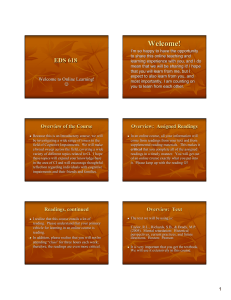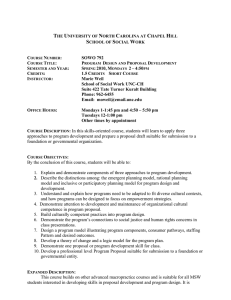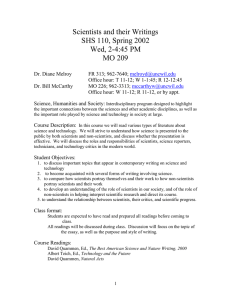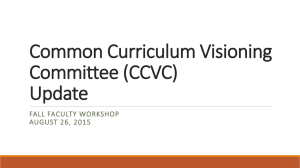Low Cost Ways to Shape Student Work Outside Class
advertisement
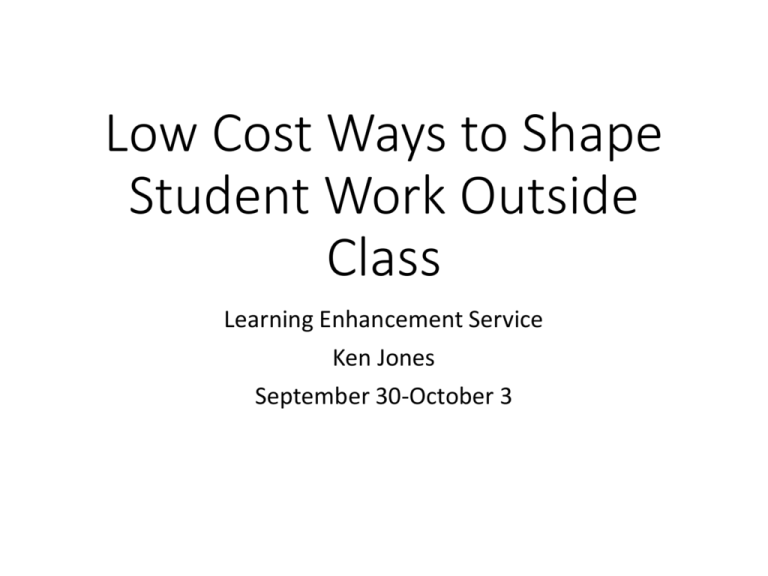
Low Cost Ways to Shape Student Work Outside Class Learning Enhancement Service Ken Jones September 30-October 3 Time Spent Studying per Week (Graduating Seniors) • More than 21 hours per week – 35.5% CSB • 16.2% SJU • Less than 10 hours per week -- 17% CSB • 37% SJU Making Expectations More Visible • Need frequent reminders • Moving beyond “work hard” or “x hours” • What should they be able to do when done? • Explain to a friend • Write a summary and provide evidence • Do homework problems without looking at text Explaining How to Learn • It is easy for us, but not for them • Need help understanding how to read in discipline • Need help understanding how to organize/study in discipline • Modeling helps • Concept maps a possibility Low Cost Incentives • Independent learning and career success • Explain performance versus mastery approaches • Tests define ability in field – permanent condition • Tests as indicator of current level and guide for improvement • Tie to non-academic interests Peer Pressure in Small Groups • Meaningful task with public result • Semi-permanent groups • Peer assessment Don’t Forget Class Discussion • Praise very good answers • Encourages the one praised • Stimulates others to reach same level • No cost to professor • Provide formal feedback on classroom participation • Provides individualized feedback • Clarifies expectations • Some cost to professor How Diligently Would You Read Before Class If • It is likely that the professor would spend most of the class on something other than the assigned readings? • It is likely that the professor would begin class by telling you want was in the assigned readings? Beware Starting by “Clarifying” the Reading • Students see no point in doing the reading before class • Students unwilling to discuss because “truth” has been revealed • Convinces professor that lectures are essential A More Effective Approach • Make them do something with the out of class material first • Many not be able to go very far, but make them do it • Step in after they have worked • Use what they have done as base for effort to move them further • Faculty clarifies, expands How Diligently Would You Prepare Before Class If • It is likely that the professor will raise questions about the readings, but will wait for people to volunteer an answer? • It is likely that the professor will ask questions on the readings, and call on people randomly for answers? • It is likely that the professor will ask questions on the readings, and call on each student by the end of the period? Calling on Students • Motivates students to do out of class work • Increases learning through active engagement • Make it a normal part of class, not a punitive action • Avoid sense of picking on individual with group calls Slightly Higher Cost Options • Done before class • Short papers, Moodle posts, journal entries • Done in class • In class writing, short quizzes, small group presentations • Do periodically, more at beginning • Keep grading simple and brief







